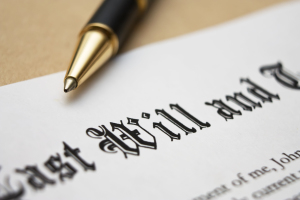 Today’s top story: Tips for writing your will. Also in the news: The most important thing to ask your financial advisor, how to spend the rest of your FSA money, and how to calculate your tax refund by checking out your pay stubs.
Today’s top story: Tips for writing your will. Also in the news: The most important thing to ask your financial advisor, how to spend the rest of your FSA money, and how to calculate your tax refund by checking out your pay stubs.
5 Tips for Writing Your Will
An unpleasant but absolutely necessary task.
The Most Important Question To Ask Your Financial Advisor
No, it’s not “can you make me rich?”
3 Tips to Use Remaining Health Flexible Spending Account Money
Don’t let your FSA money go to waste.
3 Ways to Calculate Your Tax Refund Using Your Pay Stub
Get a preview of next year’s bounty.
How to Stop Making Excuses and Finally Get Your Finances in Order
Excuses are for wimps.
